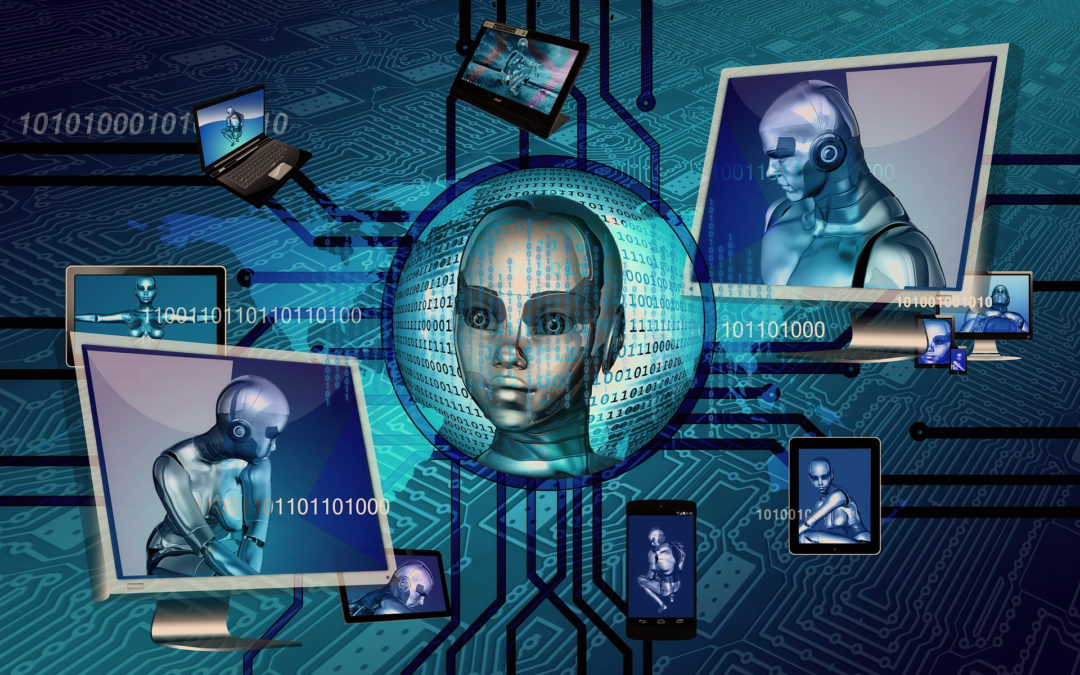
2017 has been described as the year of Artificial Intelligence (AI) by several publications and blogs that track technology and the impact it is having on our society.
But, what does that mean for “normal” people like us?
The simplest way to understand AI is to break it into two basic areas –
- changes behind the scenes we don’t see and
- changes to our user interactions.
Behind the scenes AI is going to be improving and speeding up the way we experience computer power. It is going to make sense of data in ways never possible before. Links and connections that used to be impossible to make will now happen instantaneously and send us results that will astound us. The shift will be progressive, but rapid. We won’t feel like something happened overnight, but when we compare our experience at the end of 2017 to the same time in 2016 we will be blown away. We probably won’t call this Artificial Intelligence, phrases we will hear describing this phenomenon will be; Machine Learning, Deep Learning, Reinforcement Learning, Neural Networks…. it might even begin to merge with other language associated with the Fourth Industrial Revolution as part of the Internet of Things or Industrial Internet. Because it is happening out of sight we will feel the improvements and developments without always being able to attribute it to AI. The flip side of this is that many technology charlatans will try to put an AI veneer over traditional tech and try sell it as Artificial Intelligence but this window is closing rapidly.
It is on the user experience side that we will probably find more things described and labelled as Artificial Intelligence – probably because this will feel more like the concepts pitched to us by science fiction for the past few decades. Facial recognition, voice recognition, and gesture recognition, integrated with Augmented or Virtual Reality, and technology mobility will create a user experience increasingly similar to Star Trek. This is the area that we “normal” people need to begin to practice and align ourselves with for future effectiveness. This technology development will be called AI or more specifically “Weak Artificial Intelligence”. This doesn’t mean that it is a lesser form of AI, but rather an indication of the intensity of the user experience…. we don’t need to be AI geniuses to use it – having a weak understanding of AI will be sufficient.
How will AI begin to impact our lives?
- We will begin to be able to interact with data in a more natural, human way. We will not need to rethink or redefine our queries into a different format in order to get an intelligent result.
- More of our interactions will be voice driven rather than text-based.
- The AI will learn as we use it and become more useful and accurate with each interaction.
What should we do to get the most out of AI and move with it as it improves?
- Practice, Practice, Practice….. The more you use it the better it will become and the stronger your AI insight will become.
- Use voice for searches. Rather than open the browser on your mobile phone or tablet use the built in assistant. Precede all searches with “Hey Siri…” (iOS) or “Hey Google…” (Android)
- Make your searches more intuitive and natural. In voice mode speak as if you were addressing another person. In text based searches write full sentences not just a few focal keywords, let the AI interpret your query rather than you trying to pre-translate it.
- Be patient. You will be astounded at how good AI functions already, but you need to accept that it is still improving. There will be the odd strange result, or “blank stare” from Siri or Google, but think back to the beginning of the information age and the rubbish search engines used to deliver…. but how accurate they are now. Persist and you will be pleasantly surprised at how rapidly AI will improve through 2017.
We would love to hear about your experiences with the Artificial Intelligence revolution please share them in the comments.


